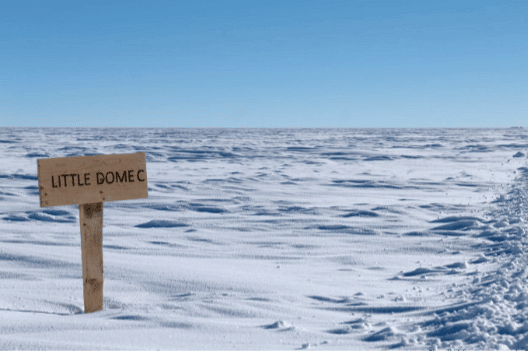ERC Beyond-EPICA - Oldest Ice (BE-OIC)
The objective of the Beyond EPICA - Oldest Ice project is to drill an ice core more than 3000 m deep, in central Antarctica, to access the oldest ice in the world (1.5 million years) in order to study the mid-Pleistocene transition, which corresponds to a change in the periodicity of glacial/interglacial climate cycles.
Accessing the world's oldest ice (1.5 million years) to study the mid-Pleistocene transition
To better constrain the long-term response of the Earth's climate system to ongoing greenhouse gas emissions, it is essential to study the past. A major advance is to understand the change in the response of the Earth's climate to orbital forcing during the 'Pleistocene Mid-Transition' [PMT, 900,000-1.2 million years ago], when the dominant 40,000-year cyclicity gave way to the current 100,000-year period.
Understanding the role of climate forcings, such as greenhouse gases, in this transition is essential. The links between the carbon cycle, the ice caps, the atmosphere and the behaviour of the oceans also need to be better understood in order to help society design an effective climate change mitigation and adaptation strategy.
Only ice cores contain direct and quantitative information on past climate forcings and atmospheric responses. However, the longest ice core available to date (EPICA) covers only the last 800 000 years.
This project allows the European glaciology community to drill in Antarctica to extract the oldest ice core in the world. The main scientific objective of the BE-OIC project is to obtain quantitative and high-resolution information on climate and environmental changes over the last 1.5 million years. The cause and effect relationship that led to the enigmatic MPT change in the climate system is not yet understood, as important information on global changes in the climate system is still missing.
CEREGE will participate in the dating efforts of the deepest part of the ice core, using cosmogenic nuclides of beryllium-10 and chlorine-36 extracted from the ice. The measurements will be performed on the accelerator mass spectrometer, ASTERisques, a French national instrument.
2019-2026: Beyond-EPICA - Oldest Ice (BE-OIC)
CEREGE lead :
Mélanie Baroni
Accessing the world's oldest ice (1.5 million years) to study the mid-Pleistocene transition


